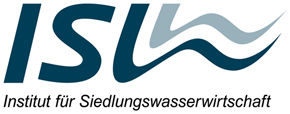
![[Translate to English:] [Translate to English:]](/fileadmin/_processed_/1/4/csm_Schriftenreihe_2018_7_b_8ba09e1ae1.jpg)
Daniel Klein
Evaluation of Nitrogen and Phosphorus Recovery Considering Wastewater Treatment Processes and Agricultural Reuse as an Interrgrated System
Abstract
In the wastewater sector, it is widely accepted to consider wastewater and its components as valuable resources. On a global scale, reusing treated wastewater in agriculture is certainly the most important aspect. In addition, the nutrients nitrogen and phosphorus contained in wastewater are also essential for agriculture. With regard to resource protection, the recovery of these components is, without doubt, reasonable. Since phosphorus is a limited, fossil element, recovery will become an urgent global need in the near future. As to wastewater treatment, both elements have to be treated using cost-expensive processes; thus, the basic conditions of nutrient recovery - i.e. commercialising the 'pollutants' N and P - seem to be favourable. Given this context, it is slightly surprising that full-scale recovery systems are not yet common.
Based on a literature review, it could be shown that this situation is related to 'deficits' related to the setup and the evaluation of recovery techniques. Those deficits negatively affect the economy and thus, the main parameter when deciding whether a new system should be implemented or not. Major deficits identified during the review are the lack of an integrated approach, as well as the missing integration of the needs and requirements of agriculture. Based on this, the hypothesis of this work was that nutrient recovery can be economically advantageous if the deficits are resolved.
To evaluate the hypothesis, a nutrient recovery system, consisting of a MAP-precipitation (to recover P) and an ammonia stripping (to recover N) has conceptually been designed for the treatment of the sludge liquor of a large municipal wastewater treatment plant (wwtp). Within an integrated approach, both the wastewater treatment- and the recovery aspects have been evaluated and accounted for. The recovery products - magnesium-ammonium-phosphate (MAP or 'struvite') and di-ammonium-sulphate (DAS) - can directly be used as fertilisers.
To consider the requirements of agriculture, the demand of mineral fertilisers has been analysed for specific crops and has subsequently been matched with the DAS and MAP-production provided by the wastewater treatment plant. In this case study, mineral fertilisers could be substituted by recovered fertilisers to a large extent. For each substitution concept, value and price of the recovered fertilisers could be determined, ensuring a win-win-situation for both the wwtp and the farmers.
Within the economic feasibility study of the whole system, selling the recovered fertilisers has been considered as revenue. By removing substantial amounts of N- and P, the load of the wwtp is reduced. The 'treatment effect' of the recovery systems has also been considered as revenue. With regard to the costs, the most notable expenses are the operating costs - above all, the costs of supplies such as acids and precipitants - considerably exceeding capital expenditures.
Given annual costs of approximately 1,19 Mio. € and revenues of approximately 1,03 Mio. €, the net annual costs amount to 160.000 €. Revenues are mainly related to the consideration of the treatment effect and thus, the integrated approach of this work. With 150.000 €/a, the revenues generated by vending the fertilisers MAP and DAS are considerably lower; but since those revenues are in the same dimension of the net costs, they are, as well as the consideration of the treatment effect, essential for the implementation and evaluation of a treatment- and recovery system.
For the case study and its framework, the hypothesis could not be confirmed completely. Within the break-even-analysis performed additionally, it could be proved that key parameters (such as the costs of supplies) could realistically be optimised to achieve long-term cost effectiveness. Favourable framework conditions (such as higher P- and N-loads in the sludge liquor, compared to the case study) could lead to cost effectiveness as well.
Besides economic questions, non-monetary aspects such as resource protection, operational benefits and flexibility on the wwtp and the local, market-independent provision of fertilisers, should also be considered when planning and implementing a comparable wastewater treatment- and nutrient recovery system.
To conclude, it could be demonstrated that a MAP-precipitation and a NH3-stripping, implemented to treat sludge liquor of a common municipal wwtp and combined with the use of the recovered fertilisers in agriculture, can be cost-effective. The system should therefore be considered as an alternative to other technical options in any case.
Vacancies of TU Braunschweig
Career Service' Job Exchange
Merchandising
Term Dates
Courses
Degree Programmes
Information for Freshman
TUCard
Technische Universität Braunschweig
Universitätsplatz 2
38106 Braunschweig
P. O. Box: 38092 Braunschweig
GERMANY
Phone: +49 (0) 531 391-0
